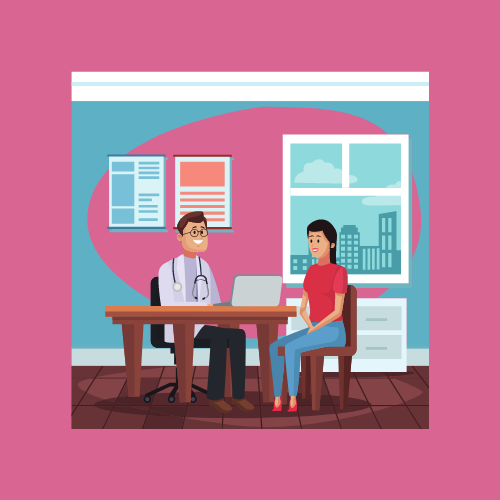Hi ADHDers!
This a very impromptu newsletter from me!
But I needed to write my thoughts about the new BBC documentary ‘Private ADHD clinics exposed’.
Spoiler alert: there are many things wrong with the documentary.
Shall we begin?
For context, the documentary follows a journalist that goes undercover to pursue an ADHD diagnosis via 3 private clinics and the UK National Health Service (NHS). He claims he does not have ADHD but ticks all of the ADHD symptoms via the assessment to show that thorough checks aren’t been done.
Yes, you read that correctly. He was clearly dishonest and decided to select all of the ADHD symptoms on a questionnaire. Isn’t this unethical?
He ends up being diagnosed with ADHD by 3 private clinics but the NHS assessment said he did not have ADHD.
There was one scene though that made me raise an eyebrow at how one of his assessments was conducted. Sorry, I have to say, the first scene with the psychologist that was super casual on zoom. I’ll leave it there.
Don’t fight me, it’s my only critique.
ADHD Diagnosis process
In the U.K., there is now up to a 5-year waiting list for an ADHD assessment. The UK NHS is severely underfunded and there are not enough psychiatrists (under the NHS) to see the number of patients waiting.
I started the ADHD diagnosis process through the NHS in 2018 and I was eventually diagnosed with ADHD combined Type in January 2020.
This is a shorter wait than most people.
When my GP told me that it was a 2-year process, I was shocked but said I still wanted to go ahead with it. While I waited, I researched private ADHD clinics but saw that it cost around £600-700.
I couldn’t afford it.
I had already ruled out early-onset dementia via an appointment with my GP in 2016 so I decided to wait it out instead of paying. Heads up, many people research ADHD and explore other conditions before they request an ADHD assessment.
Key Points:
The documentary did not highlight the systemic failures of the NHS. People are forced to go to private clinics because of the long NHS waiting list. I disliked that he made it seem that any old Joe just woke up and fancied an ADHD diagnosis so booked an appointment.
The cost of a private ADHD diagnosis ranged from £600 - £1000. I don’t understand why it’s so expensive and I question whether some clinics are being exploitative. One of my followers said he saw it double in price in a short period.
What happens when people aren’t able to get an ADHD diagnosis?
This is a pretty packed newsletter already so I’m linking to a previous newsletter I wrote about his.
The underdiagnosis of ADHD
The one thing that made me cringe about the documentary is the failure to highlight that Women, especially ethnic minority women go undiagnosed.
There are quite a lot of studies and articles explaining that Women do undiagnosed for so long due to:
Masking
The stereotype that only hyperactive boys can have ADHD
There are studies that found that Black, Latinx, and Asian American children are undiagnosed/overlooked according to their White counterparts.
Misdiagnosis of other conditions
The list goes on!
I briefly touched on this in E4’s ‘Sam Thompson: Is This ADHD’ documentary. But it is a bit of a shame that the good conversation we had on race, class, and family background didn’t make the cut. As I know people would have benefited from it.
Anyways, I have a few concerns with the documentary:
I have already seen comments debating who should or shouldn’t be diagnosed with ADHD.
I worry that it will deter people that really need help and so are seeking an ADHD diagnosis.
I question whether it will cause psychiatrists to avoid diagnosing people with ADHD, so they don’t have a high rate attached to their clinic.
Finally, I worry that those of us that have been diagnosed with ADHD could be refused reasonable adjustments we request because we seem ‘ok’.
Aftercare
The one thing I raised an eyebrow at in the documentary, was the guy’s claim that there were no thorough checks or explanations of risks when it came to prescribing him ADHD medication. This is not OK.
I don’t know how accurate his claim was, but I have pulled together a few questions you could raise when assessing meds with a Dr:
Can you explain the difference between stimulants and non-stimulants?
What are the side effects associated with each medication?
Explain your day-to-day, other meds you’re on, and sleeping patterns and ask them if they’d advise short or long-acting meds.
Ask if they provide a full blood workup and an ECG. If they don’t try and request this from your GP via the NHS. I wasn’t allowed to go above 10mg until I did an ECG. I found this reasonable because of the risks associated with ADHD meds.
I have to regularly check my blood pressure and sometimes report my height and weight to my GP/pharmacists. You can confirm if the GP can do the same for you even if you were diagnosed via a private clinic.
If you’re reading this, ADHD is a neurodevelopmental disorder that has negative impacts on many people’s lives. It’s insulting to see the number of articles claiming that it is a fad.
If you want to pursue an ADHD diagnosis assessment, don’t let this documentary discourage you. We all deserve support and treatment for things that we struggle with.
An ADHD diagnosis comes with a greater understanding of self and enables people to get support via ADHD accommodations and school and in the workplace. Also, treatment in the form of medication for those that choose it.
That’s all from me!
Rach with ADHD.







Excellent post. I published a piece about the BBC’s investigation earlier today. It’s tantamount to journalistic malpractice and everyone involved should feel ashamed.
I read the article on it and it irritated me so much. I'm lucky I am in the US and it is relatively easy to get diagnosed assuming you have insurance. But I went to someone who said he assumed you didn't and went from there. So it wasn't a guy passing out diagnoses willy nilly.
That said as a woman that wasn't diagnosed until she was in her mid to late thirties and knows that women are so under diagnosed I hate the stereotype that it is fad.
Yes if you weren't diagnosing many young girls for decades and suddenly the public is more aware of what it is there is going to be a surge in diagnoses.